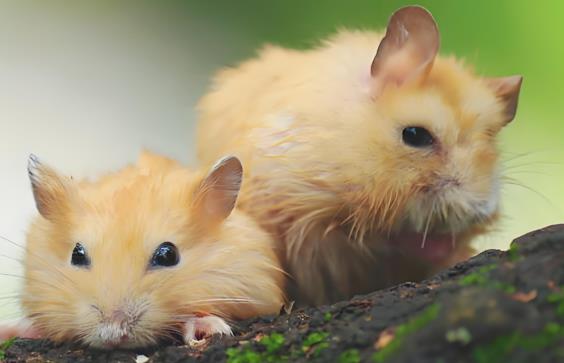The optimal diet for dwarf hamsters should follow the core principles of low sugar, low fat, and high fiber, with scientific combinations tailored to their breed characteristics. Here are specific recommendations:

1. Staple Food Ratio (Daily Basics)
Grass Seeds (≥60%)
Recommended: Flaxseeds, cucumber seeds, ryegrass seeds, canary seeds, and hubbard seeds (help reduce heat and aid digestion).
Function: Provide essential fatty acids, preventing diabetes and obesity.
Whole Grains (30%-40%)
Recommended: Rolled oats, millet, buckwheat, mung bean slices (must be cooked), and corn (aids in teeth grinding).
Avoid: Waxy corn and sorghum (prone to causing bloating).
Oily Seeds (≤5%)
Limited: Safflower seeds and hemp seeds (1-2 times a week, 2-3 seeds each time).
2. Protein Supplements
Animal Protein
Boiled chicken breast (fat removed), boiled egg whites, and unsalted dried small fish (twice a week).
Insect protein: Mealworms and crickets (remove shells to prevent choking).
Plant Protein
Tofu (unsalted, no seasonings) and chickpeas (cooked).
3. Vegetable and Fruit Choices (Feed Cautiously)
Safe Options
Vegetables: Broccoli, cucumber, carrots (wipe dry to remove excess moisture).
Fruits: Tips of strawberries, blueberries (remove seeds, 2-3 times a week).
Forbidden List
Absolutely prohibited: Citrus fruits, apple cores, peanut butter, chocolate.
High-risk: Watermelon (only a tiny amount of rind allowed), fresh leafy greens (risk of diarrhea).
4. Adjustments for Special Needs
Prone-to-Obesity Breeds (e.g., Roborovski hamsters)
Adjust the ratio of grass seeds to grains to 7:3, and reduce oily seeds to 2.5%.
Diabetes Prevention
Add fenugreek seeds (to stabilize blood sugar) and dandelion greens (to clear heat).
Note: Control daily food intake to 3-5 grams to avoid spoilage of leftover food. When switching diets, allow a 7-day transition period.
